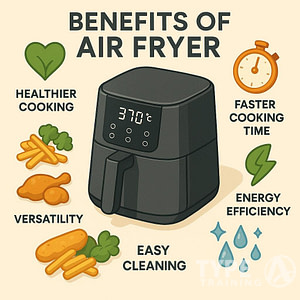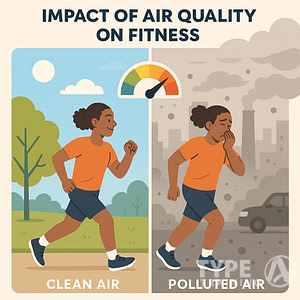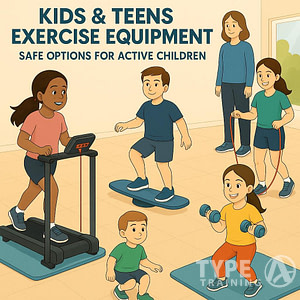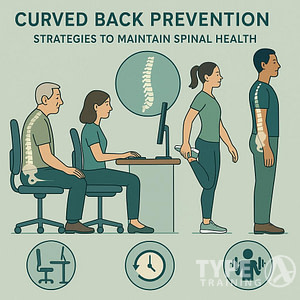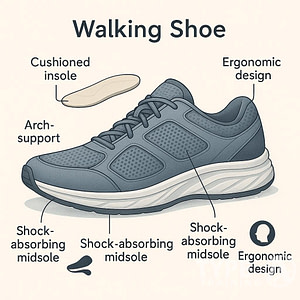Coffee is a popular pre-workout beverage among fitness enthusiasts. Many gym-goers swear by their morning cup before hitting the weights or starting their cardio routine.
Drinking coffee 30-60 minutes before exercise can enhance your workout performance by increasing alertness, improving focus, and boosting physical endurance.
The caffeine in coffee stimulates your central nervous system, helping you push through challenging workouts with reduced perception of effort.
Popular posts:
Studies show that coffee can improve your power output, speed, and stamina during both strength training and aerobic exercises. Your body metabolizes coffee quickly, making it an effective and natural alternative to commercial pre-workout supplements.
Key Takeaways
- Consuming coffee 30-60 minutes before exercise enhances mental focus and physical performance
- Caffeine from coffee increases power output and reduces perceived effort during workouts
- A single cup of coffee provides similar benefits to pre-workout supplements with fewer artificial ingredients
Chemical Profile of Coffee
Coffee contains hundreds of bioactive compounds that influence physical performance, with caffeine being the primary active ingredient alongside various minerals and antioxidants.
Caffeine Content and Forms
A standard 8-ounce cup of black coffee provides 80-100mg of caffeine, though this can vary based on brewing method and bean type.
Espresso delivers 60-75mg of caffeine per 1-ounce shot, making it a concentrated source for pre-workout consumption.
Specialty coffees like cold brew can contain 150-240mg of caffeine per 8 ounces due to their extended brewing process.
Your body absorbs coffee’s caffeine within 30-60 minutes, with peak blood levels occurring around 90 minutes after consumption.
Additional Nutrients and Substances
Black coffee adds minimal calories to your pre-workout nutrition, with just 2-5 calories per 8-ounce serving.
Coffee provides essential minerals including magnesium (7mg), potassium (116mg), and niacin (0.5mg) per cup.
Chlorogenic acid, a powerful antioxidant in coffee, helps reduce exercise-induced oxidative stress.
Adding milk, sugar, or flavored syrups can increase the caloric content by 50-300 calories depending on serving size and ingredients.
The polyphenols in coffee act as natural anti-inflammatory compounds that may aid in post-workout recovery.
Pre-Workout Benefits of Coffee
Coffee serves as a powerful ergogenic aid that directly enhances athletic capabilities through multiple physiological pathways. Its active compounds boost physical output, sharpen mental focus, and optimize metabolic function.
Enhancement of Athletic Performance
Consuming coffee 30-60 minutes before exercise increases strength and power output by up to 11%. The caffeine content stimulates your central nervous system, reducing perceived effort during workouts.
Your muscular endurance improves significantly, allowing you to perform more reps before fatigue sets in. Research shows athletes can sustain high-intensity activities for 12% longer after drinking coffee.
Coffee’s ergogenic effects peak at 3-6mg of caffeine per kilogram of body weight. For a 150-pound person, this equals roughly 2-3 cups of coffee.
Mental Alertness and Focus
Coffee sharpens your reaction time and decision-making abilities during exercise. The caffeine blocks adenosine receptors in your brain, increasing alertness and reducing mental fatigue.
Your coordination and movement precision also improve. Studies demonstrate enhanced mind-muscle connection during complex exercises after coffee consumption.
Exercise-related pain perception decreases by up to 48% with pre-workout coffee intake. This allows you to push harder through challenging sets.
Metabolic Effects and Fat Oxidation
Coffee accelerates fat burning during exercise by increasing fatty acid availability in your bloodstream. Your body utilizes fat as fuel more efficiently when caffeine is present.
The thermogenic effect of coffee raises your metabolic rate by 3-11%. This elevated metabolism continues throughout your workout session.
Coffee also mobilizes stored fat cells more effectively when consumed before morning exercise. Research indicates a 15% increase in fat oxidation during fasted training with pre-workout coffee.
Optimal Timing for Pre-Workout Coffee
Consuming coffee 30-60 minutes before exercise maximizes its performance-enhancing benefits, with caffeine levels peaking in your bloodstream during this window.
Coffee Consumption and Pre-Workout Routine
Your pre-workout coffee timing directly impacts its effectiveness for exercise. Aim to drink your coffee 45 minutes before starting your workout for optimal results.
A standard 8-ounce cup of coffee contains 80-100mg of caffeine, which takes about 30-45 minutes to reach peak blood concentration.
If you exercise early in the morning, drink your coffee immediately after waking up to give it time to take effect before your workout begins.
For afternoon workouts, space your coffee intake at least 6 hours from bedtime to prevent sleep disruption.
Effect on Exercise Performance
Coffee consumed at the right time can boost your power output by 3-7% during strength training exercises.
Your endurance capacity increases when you drink coffee 30-60 minutes before cardio workouts. Research shows improvements in time-to-exhaustion by up to 12%.
Key Performance Benefits:
- Enhanced focus during exercise
- Reduced perceived exertion
- Improved muscle contraction
- Increased fat oxidation
Understanding Coffee’s Side Effects on Exercise
Coffee consumption before workouts brings several physiological effects that can impact your exercise performance, ranging from altered hydration status to changes in sleep patterns and potential physical reactions.
Diuretic Impact and Hydration
Caffeine increases urine production, which can affect your hydration levels during exercise. You’ll need to drink extra water to compensate for this diuretic effect.
Your body loses approximately 1.17 mL of water for every 1 mg of caffeine consumed. This means a standard 8 oz cup of coffee (95 mg caffeine) could lead to about 110 mL of extra fluid loss.
Dehydration can increase your perceived effort during workouts and may reduce endurance capacity by up to 10%.
Sleep and Recovery Considerations
Coffee consumed late in the day can disrupt your sleep cycle for up to 6-8 hours after intake.
Poor sleep quality directly impacts muscle recovery and repair processes. When you don’t get adequate rest, your body produces less growth hormone and testosterone – key hormones for muscle development.
Exercise performance typically drops by 20-30% when you’re sleep-deprived, affecting both strength and endurance capacity.
Potential Adverse Reactions
Your heart rate may increase by 3-7 beats per minute within 15-45 minutes of coffee consumption.
Common physical reactions include:
- Jitters and trembling hands
- Increased anxiety levels
- Stomach discomfort
- Headaches
These symptoms typically affect 20-30% of people who drink coffee before exercise, particularly those sensitive to caffeine or consuming more than 200mg pre-workout.
Reducing your dosage or timing consumption earlier can help minimize these effects while maintaining performance benefits.
Differences Between Coffee and Pre-Workout Supplements
Coffee and pre-workout supplements offer distinct approaches to enhancing exercise performance, with significant variations in their ingredients, effects, and suitability for different fitness goals.
Comparison of Ingredients and Benefits
Pre-workout supplements contain multiple ingredients beyond caffeine, including beta-alanine, creatine, BCAAs, and L-citrulline. These compounds work together to boost energy, enhance muscle endurance, and improve blood flow.
Coffee provides 80-100mg of caffeine per cup, along with beneficial antioxidants and polyphenols. Its effects focus primarily on mental alertness and fat metabolism.
Pre-workouts typically deliver 150-300mg of caffeine per serving, plus targeted performance enhancers. This higher dose can provide more intense energy boosts for demanding workouts.
Considerations for Choosing Between Them
Your fitness goals play a key role in selecting between coffee and pre-workout supplements. For morning jogs or light training, a cup of coffee provides sufficient energy without excess stimulation.
Pre-workout supplements work best for intense strength training or high-volume workouts where multiple performance benefits are needed.
Your caffeine sensitivity matters. Coffee offers better dose control and fewer side effects for those sensitive to stimulants.
Cost comparison:
- Coffee: $0.20-0.50 per serving
- Pre-workout: $1-2 per serving
Consider timing – coffee takes 15-20 minutes to peak, while pre-workouts need 30-45 minutes for full effectiveness.
Nutritional Aspects and Supplemental Alternatives
Coffee’s performance benefits can be enhanced by strategic food pairings and alternative supplements that match your fitness goals.
Foods and Drinks to Pair with Pre-Workout Coffee
A banana with your coffee provides quick-digesting carbohydrates and potassium for sustained energy during exercise.
Oats mixed with protein powder create an ideal pre-workout meal. Consume this combination 60-90 minutes before training with your coffee. It delivers steady energy through complex carbohydrates while supporting muscle recovery.
Greek yogurt pairs well with coffee 30 minutes before exercise. It offers protein and probiotics without causing digestive discomfort during training.
Cold brew coffee mixed with a protein shake can serve as an all-in-one pre-workout drink. This combination provides approximately 20-25g of protein alongside caffeine’s stimulant effects.
Natural and Synthetic Alternatives
Theacrine offers similar benefits to caffeine with potentially fewer tolerance issues. This compound occurs naturally in kucha tea leaves and provides 3-4 hours of sustained energy.
Beta-alanine supplements can enhance muscular endurance during high-intensity workouts. The standard dose ranges from 3-6g taken 30 minutes before exercise.
Natural alternatives to coffee include:
- Green tea (contains L-theanine for focused energy)
- Yerba mate (rich in antioxidants)
- Guarana (natural caffeine source)
Pre-workout supplements often combine multiple ingredients like caffeine, beta-alanine, and B-vitamins. These products typically contain 150-300mg of caffeine per serving.
Scientific Studies and Guidelines
Multiple research studies show caffeine from coffee improves exercise performance by 2-16% across different activities and workout intensities. Sports organizations recommend specific timing and dosages to maximize these benefits.
Research on Coffee and Exercise Performance
A 2021 study in the Journal of Sports Science found drinking coffee 30-60 minutes before exercise increased muscular strength by 7% during resistance training. Your muscles can contract more forcefully due to caffeine’s effect on calcium release.
Coffee consumption before aerobic activities like running improves endurance by up to 12%. Research indicates caffeine helps preserve glycogen stores and increases fat oxidation during workouts.
Studies demonstrate coffee’s positive impact on high-intensity interval training (HIIT). Participants who drank coffee performed 16% more repetitions and maintained higher power output compared to placebo groups.
Recommendations from Sports Nutrition Authorities
The International Society of Sports Nutrition suggests consuming 3-6mg of caffeine per kilogram of body weight 30-60 minutes before exercise. For a 150-pound person, this equals about 2-3 cups of coffee.
Sports nutritionists recommend avoiding coffee 6 hours before bedtime to prevent sleep disruption. Your afternoon workouts may benefit from a smaller dose of 1-2mg/kg.
Coffee works best as a performance aid when you don’t consume it regularly. Taking 1-2 coffee-free days per week helps maintain caffeine sensitivity.
Personalization of Coffee Intake for Workouts
The right coffee intake strategy varies for each person based on body weight, caffeine tolerance, and workout timing. Your fitness goals and body’s response to caffeine play crucial roles in determining optimal consumption.
Tailoring to Individual Tolerance and Goals
Your body weight directly affects how much caffeine you need. Aim for 3-6mg per kilogram of body weight. For a 70kg person, this means 210-420mg of caffeine, or about 2-4 cups of coffee.
Different fitness goals require distinct timing strategies. For strength training, drink coffee 30-45 minutes before your workout. For endurance activities, consider splitting your intake – half a cup before and the rest during exercise.
If you’re new to pre-workout coffee, start with half a cup to assess your tolerance. Morning workouts might require slightly more coffee due to your body’s natural cortisol levels.
Monitoring and Adjusting to Bodily Responses
Track your heart rate during workouts after coffee consumption. A significant spike above your normal range suggests reducing intake.
Watch for signs of caffeine sensitivity:
- Jitters or anxiety
- Irregular heartbeat
- Excessive sweating
- Stomach discomfort
Stay hydrated by drinking 16-20 oz of water with your pre-workout coffee. Adjust your timing if you experience mid-workout bathroom breaks.
Test different coffee amounts during training sessions, not competition days. Record your reaction times and energy levels to find your optimal dose.
Frequently Asked Questions
Coffee can significantly enhance physical performance, energy levels, and metabolic effects during exercise when consumed strategically and in appropriate amounts.
What are the benefits of consuming coffee prior to exercising?
Coffee increases mental alertness and focus during workouts. The caffeine content helps reduce perceived exertion, making exercises feel less challenging.
Coffee’s natural compounds boost endurance and strength during both cardio and resistance training sessions.
How does caffeine affect your energy levels and athletic performance during a workout?
Caffeine blocks adenosine receptors in your brain, reducing fatigue and increasing alertness. This effect typically kicks in within 30-60 minutes of consumption.
The stimulant properties help mobilize fatty acids for energy use and improve muscle contraction strength.
Are there any negative side effects associated with drinking coffee before engaging in physical activity?
Some people may experience jitters, anxiety, or heart palpitations if sensitive to caffeine. Excessive coffee intake can lead to dehydration during intense workouts.
Drinking coffee late in the day might disrupt sleep patterns, affecting recovery.
How long should you wait to exercise after drinking coffee for optimal performance?
Peak caffeine absorption occurs 45-60 minutes after consumption. Planning your coffee intake about an hour before exercise provides optimal benefits.
Drinking coffee too close to workout time may cause stomach discomfort during high-intensity activities.
Can drinking coffee before exercising help increase calorie burn?
Coffee temporarily boosts your metabolic rate by 3-11%. The combination of caffeine and exercise enhances fat oxidation during workouts.
This increased calorie burn can last several hours post-workout.
Is it more beneficial to have coffee before or after a workout for muscle recovery and weight loss?
Pre-workout coffee maximizes performance benefits and fat-burning potential. The caffeine helps mobilize fatty acids. It also increases power output during training.
Post-workout coffee doesn’t provide the same performance advantages. However, it can help with mental recovery.










